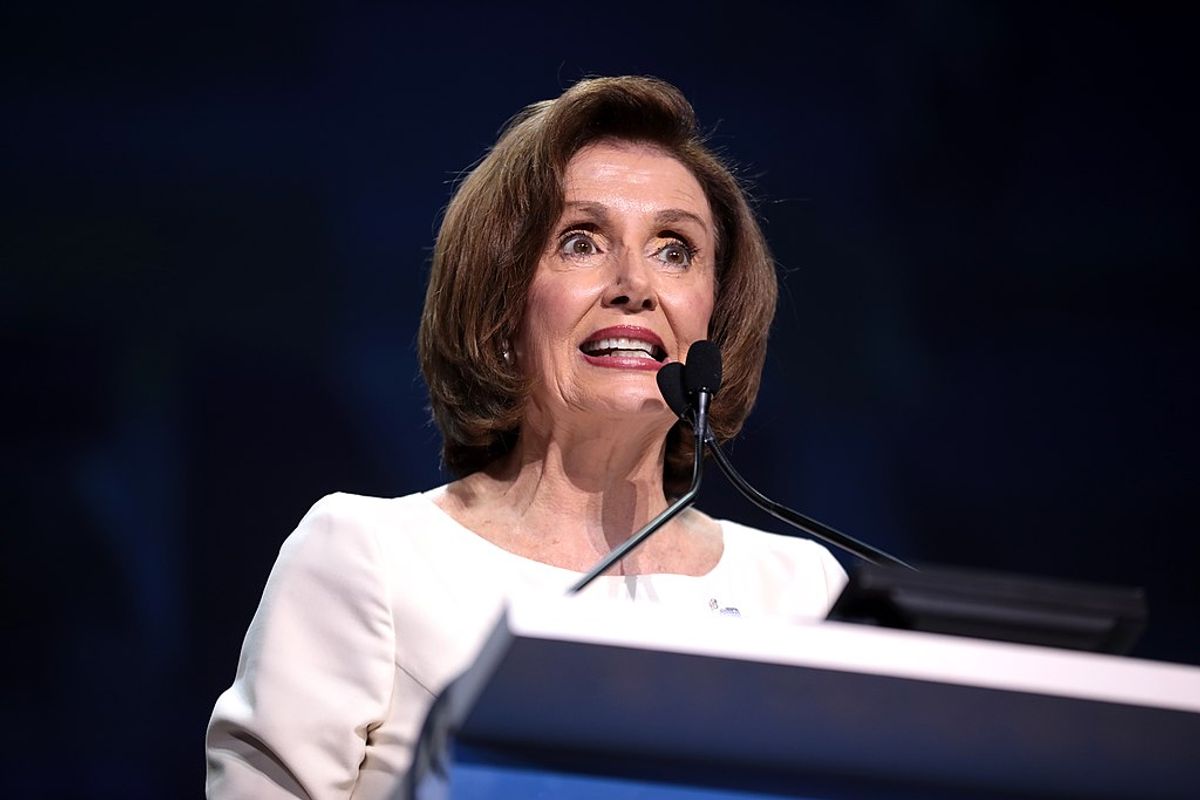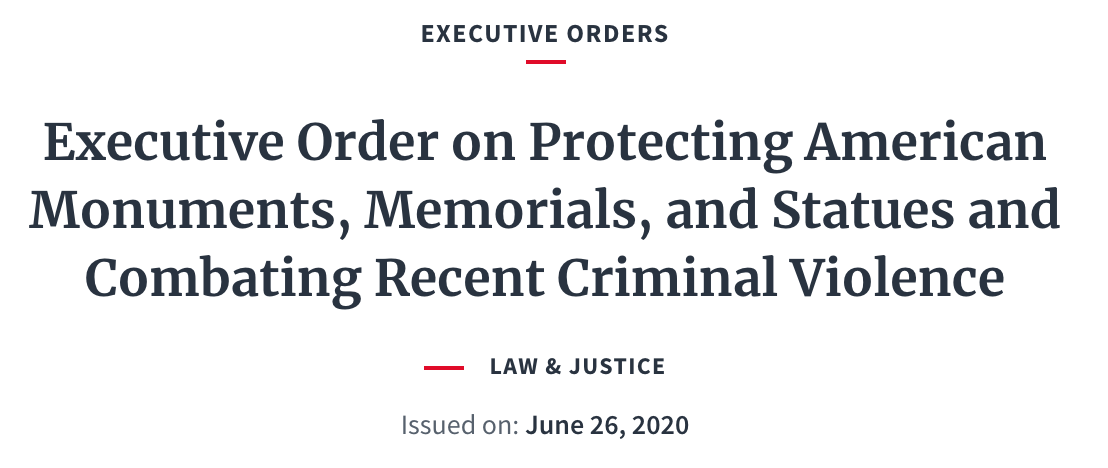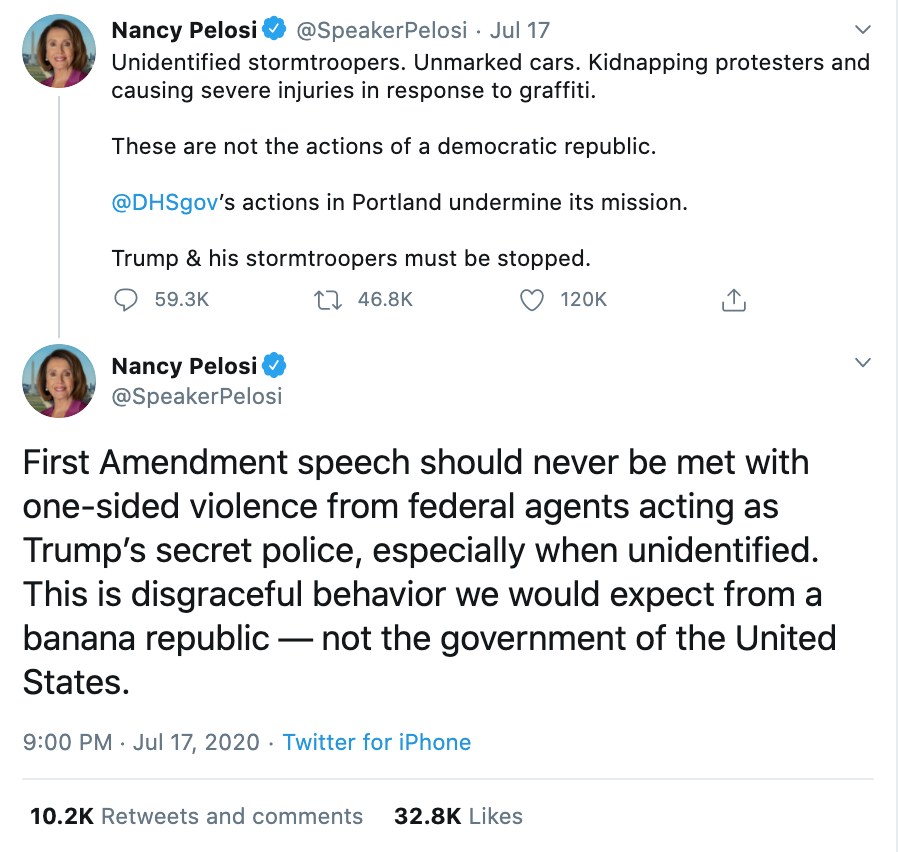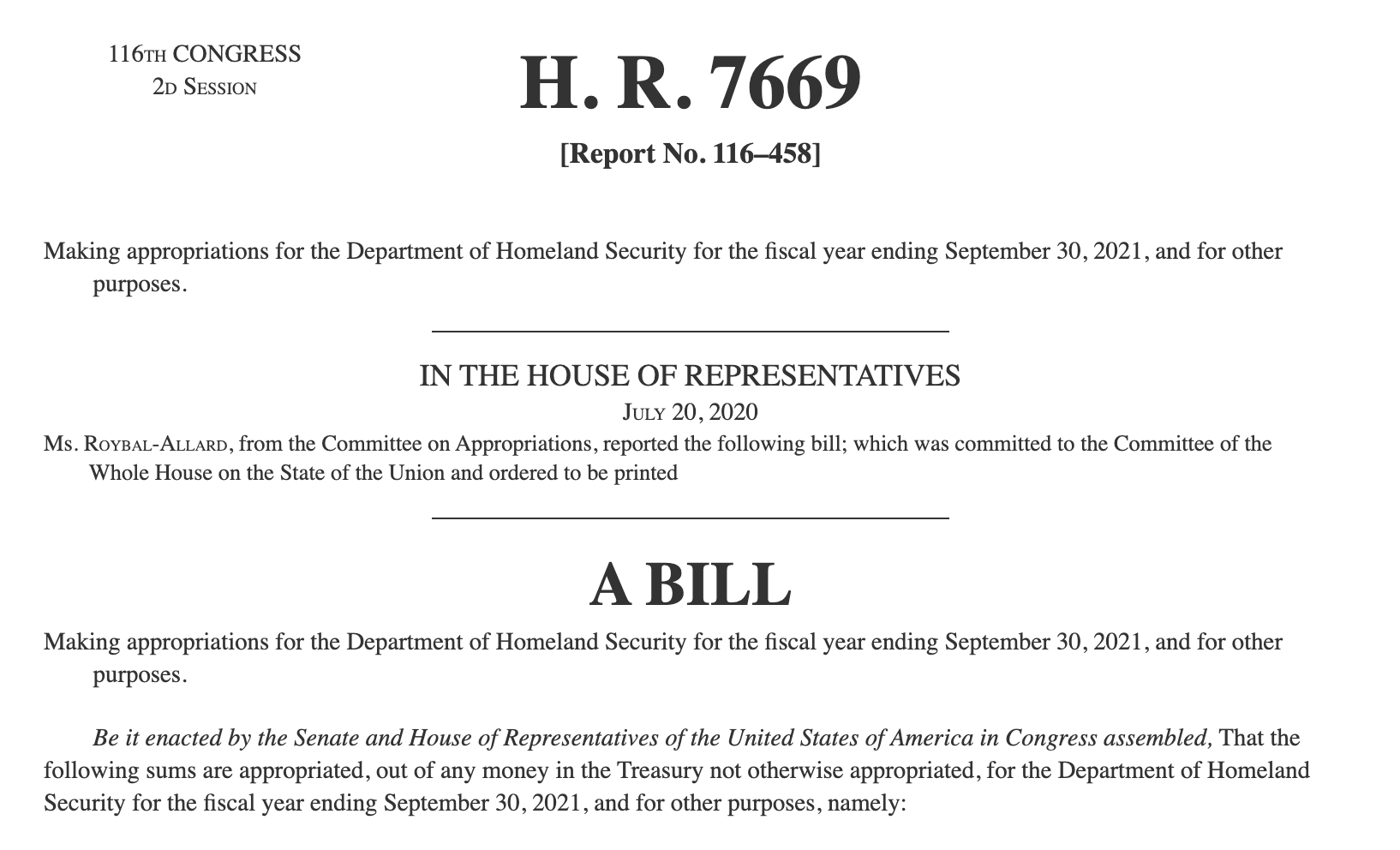U.S. House Speaker Nancy Pelosi criticized the actions of federal officers in Portland, Oregon — the site of almost-nightly clashes between protesters and agents with the Department of Homeland Security (DHS) — in July 2020. At the same time, other members of the House were working on a budget proposal that would fund the (DHS) in 2021.
As of this report, no evidence showed Pelosi supported the budget proposal, which was written by her colleagues in the House Committee on Appropriations and awaiting a full floor hearing. Additionally, the legislation as written would not pump federal dollars directly into programs that deploy militarized federal officers in U.S. cities where Americans are exercising their First Amendment rights.
As a comedian who claims he sees the faults in both major U.S. political parties, Jimmy Dore said this to fans amid clashes between Portland, Oregon, protesters and federal agents operating under a plan by U.S. President Donald Trump in July 2020: the country's top Democrats are misleading you.
In a video posted on July 22, 2020, Dore claimed U.S. House Speaker Nancy Pelosi and other Democrats were quick to use Twitter to push back against what started as a Trump-led initiative to deploy federal militarized officers in cities where people were protesting for the removal of racist monuments and against police brutality following George Floyd's in-custody death in May 2020.
Meanwhile, Dore claimed the same Democrats were working on legislation that would fund the exact law-enforcement effort to which they were outwardly opposed — the Trump-sponsored plan that resulted in chaotic street clashes between the officers and Americans who said they were rightfully exercising their First Amendment rights, and raised questions over the constitutional authority of federal law enforcement agencies.
Referring to groups of armed federal officers who wore camouflage body armor and were patrolling downtown Portland at the time of this analysis, Dore said:
You know who’s not even trying to stop them? Nancy Pelosi. You know who’s actually empowering that very thing to happen? You know who’s giving Trump the soldiers, the goons, and the money to send those people in there without stopping them? ...
Nancy Pelosi is giving Trump’s Homeland Security, who those goons are, all the money they want with no strings attached. She could say, 'We’ll fund you, but inside this funding bill you cannot send federal troops into local municipalities, unless you’re invited.' She’s not doing that — the Democrats aren’t doing that. ... There's Nancy Pelosi, one of the most powerful people in government, not doing anything but pretending to be outraged.
The claim at its core was multifaceted: that Pelosi made clear in public statements that she opposed the Trump administration's use of federal agents in American cities including Washington, D.C., Chicago, and Portland in the aftermath of Floyd's death, and that she was concurrently working on a policy proposal that would cover the cost of similar militarized efforts in the future.
Below examines the truth of those assertions based on federal legislative records; Pelosi's office did not respond to Snopes' request for comment on the accusations.
To What Federal Agency Did The 'Goons' Belong?
In an email to Snopes, a representative for Dore said he wanted to expose his viewers to the idea that House Democrats were "refusing to use their majority status to counter Trump," and that he based his argument on an article by a former speech writer for 2020 presidential candidate U.S. Sen. Bernie Sanders named David Sirota. That report alleged:
Indeed, at times it almost seems as if Democrats are engaging in deliberate performance art to try to dare us to care about this bait and switch — as if they really cannot believe we are all this ignorant or asleep to not even notice the swindle.
First, let's provide some context. Trump signed an executive order on June 26, 2020, giving several federal agencies the authority to join the Federal Protective Service — which is a section of the Department of Homeland Security (DHS) that aims to protect government properties — on patrols during demonstrations.
Neither that order, nor other federal records, said how many agents would be participating in the effort, or what department they worked for. However, DHS Acting Deputy Secretary Kenneth Cuccinelli told reporters tactical units from the DHS' Customs & Border Protection (CBP) and Immigration & Customs Enforcement (ICE) were part of the president's directive. Other reports said officers from a group known as BORTAC — the CBP equivalent of a SWAT team that normally investigates drug-smuggling crimes — was also deployed.
That said, the DHS was among the leading agencies in the federal government's response to the protests, making an investigation into that department's funding proposals the most appropriate avenue to determine the legitimacy of the claim. We reached out to DHS, asking for its response to critics like Dore who believed the DHS should not receive federal funding until it removes its officers from protest sites, but did not hear back as of this writing.
David Lapan, a former spokesman for the DHS and Department of Defense, however, said in a blog post:
The creation of DHS [in 2002] was the federal response to the finding, after the 9/11 attacks, that no single agency within the government was responsible for securing the country. ...
While the core mission of DHS remains essentially unchanged, its roles and responsibilities have grown in response to various threats including cyber-attacks, election interference, drug smuggling and transnational criminal organizations. None of these threats appear to be present in Portland’s protests. So, at a minimum, whatever DHS is doing in Portland strays wildly from the reason DHS exists in the first place.
Did Pelosi Criticize Federal Officers' Actions?
Next, we'll address the first part of the claim: that Pelosi decried the Trump-led operation, which devolved into federal officers using tear gas and firing less-than-lethal rounds into crowds of people almost nightly in Portland, and an incident in which a federal officer threw an impact munition at a 26-year-old man, fracturing his skull and sending him to the hospital. (That incident was also captured on video.)
While individual offices of several Democratic leaders made public statements about the federal use of force against citizens, we are only focusing on comments specifically by Pelosi, since she is the only member of Congress with the legal authority to decide on what legislation the House votes on, and because she was the main target of Dore's video.
Upon our analysis of Pelosi's press announcements, media appearances, and social media posts since Trump made the directive, a series of tweets from her official account on July 17, 2020, appeared to be the first record of the House Speaker's dissent from the presidential administration's plan.
The following day, her office sponsored a news release that said the House was committed to "moving swiftly to curb these egregious abuses of power" by Trump, without providing specifics, and referred to reports of federal agents in Portland using unmarked vehicles to "kidnap" protesters. (See our investigation into the truth of that claim here).
Then, five days later, Pelosi endorsed another statement alleging that the "anonymous federal law enforcement agents" were silencing "peaceful protesters with violence," and made the following comment at a news conference:
The use of storm troopers under the guise of law and order is a tactic that is not appropriate to our country in any way.
To recap, it was truthful to say that Pelosi criticized how federal agents responded to American protests in summer 2020, and that at least some of those officers represented DHS.
Was Pelosi Working Behind the Scenes to Fund Similar Efforts?
Now, we'll examine the more complicated aspect of the claim: that Pelosi was working under the public's radar to prepare legislation that would set aside taxpayer dollars to pay to deploy federal law enforcement officers in U.S. cities in line with Trump's June order. To explore that question, we analyzed the agendas of House committees in July 2020 and looked for proposals that would apply to DHS considering its role in the protests.
We learned the House Committee on Appropriations — to which Pelosi does not belong — released a more than $50 billion proposal on July 6, 2020, that explained how the committee would like to fund the department in 2021. The annual DHS budget bill was framed by the House committee as a compromise with Trump's wishes for all offices within the department, which included aggressive funding to continue building a concrete-steel wall along the U.S.-Mexico border. During our read of the draft legislation, we considered the various arms of federal government to which the DHS oversees, in addition to those that had provided law enforcement at protests, such as:
- U.S. Coast Guard
- Cybersecurity and Infrastructure Security Agency (CISA)
- Federal Emergency Management Agency (FEMA)
- Transportation Security Administration (TSA)
Among numerous provisions, the proposal would set aside roughly $14.6 billion for the CBP to hire new officers, among other border-security efforts, and about $7.4 billion for ICE. In total, it would set aside $50.72 billion in discretionary funding — including roughly the same amount as the country's 2020 budget for non-military units — while boosting funding for defense operations by roughly $250 million, disaster relief by $5.1 billion, and military operations overseas by $215 million.
However, nowhere in the roughly 85-page piece of legislation did the committee request federal dollars in 2021 to cover the cost of sending federal agents to U.S. cities to mitigate damage to federal properties during protests.
On July 15, 2020, the House committee — which is comprised of 30 Democrats and 23 Republicans — amended the legislation so ICE would be unable to use 2021 funding for a public education program, among other changes that essentially added stipulations for how and under what circumstances DHS could use portions of the money. But no amendment pertained to the use of militarized tactics during protests in American cities.
In other words — yes, like Dore somewhat alleges — House Democrats could in theory include language in the proposal that would only allow the DHS to receive certain funding if it agreed not to participate in the controversial law-enforcement effort.
The committee approved the budget bill, and it was introduced to the House on July 20, 2020. But as of this writing, it was unclear when or if Pelosi would preside over a hearing in which the full House would consider the proposal, titled H.R. 7669. Also undetermined was if or to what extent representatives would lump the DHS spending plan into a wide-sweeping policy package governing other aspects of federal government — such as its response to the COVID-19 coronavirus pandemic — which is typically the process for such budget-making.
The House clerk's online calendar for the week of July 27, 2020, listed the legislation as an item "that may be considered" on the House floor in the coming days, without any more scheduling details.
At least two Democratic representatives, Rep. Pramila Jayapal of Washington state and Mark Pocan of Wisconsin, asked Pelosi not to schedule the bill for a floor hearing in light of the 2020 protests. They wrote in a statement:
The Progressive Caucus has long-standing objections to the DHS Appropriations bill, which would fund [Trump-sponsored] programs and thereby sanction the horrific violations of human rights and due process by ICE, CBP and other agencies. Without the inclusion of additional necessary reforms, we believe that the Democratic Leadership should not attempt to pass Homeland Security funding by tying it to essential coronavirus research, education, and housing funding.
Now, back to the claim in question. Yes, it was accurate to say members of the House were working on a DHS budget plan in July 2020 — when Pelosi and other leading Democrats were issuing public statements against the very actions of federal officers who belonged to the department.
However, Pelosi had not voted on or publicly discussed the budget bill as of this report, and given the fact that she did not respond to Snopes' request for interview, there was no available evidence to prove that she agreed — or disagreed — with the proposal. Put another way: It would be false to assert that Pelosi supported the funding proposal, as the claim stated, since it was so far only approved by the House Committee on Appropriations and awaiting a House vote.
Additionally, while H.R. 7669, as written, would not explicitly prohibit the use of DHS officers to protect federal properties during demonstrations, it would be misleading to claim the legislation would pump federal dollars toward such law-enforcement efforts directly. The bill, instead, would authorize the DHS to decide how to divvy up some parts of its budget — which could include funding DHS agencies that were involved in the 2020 protests — but we have no proof to affirmatively state that the proposal would pay for the controversial policing tactics in the future.
In sum, while it was unequivocally true to say Pelosi criticized the actions of federal agents in U.S. cities during protests in 2020, it was false to claim she simultaneously supported a budget bill that contradicted her public stance, and that that legislation would most definitely pay for militarized policing during demonstrations in U.S. cities — with the caveat that House leaders, including Pelosi, always maintained the authority to determine how and under what circumstances DHS could use federal dollars in the future.





